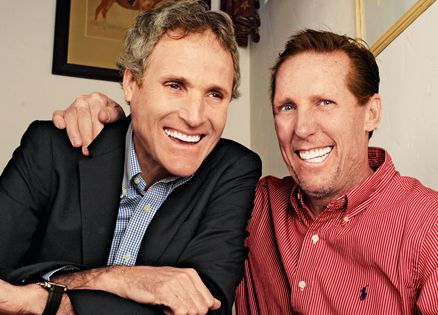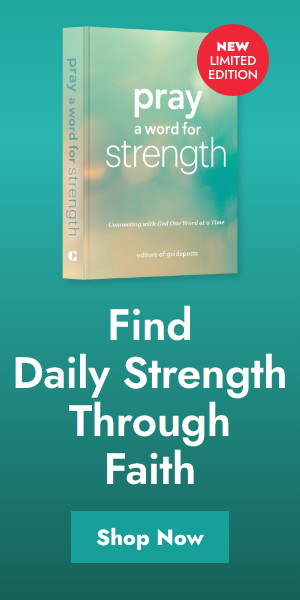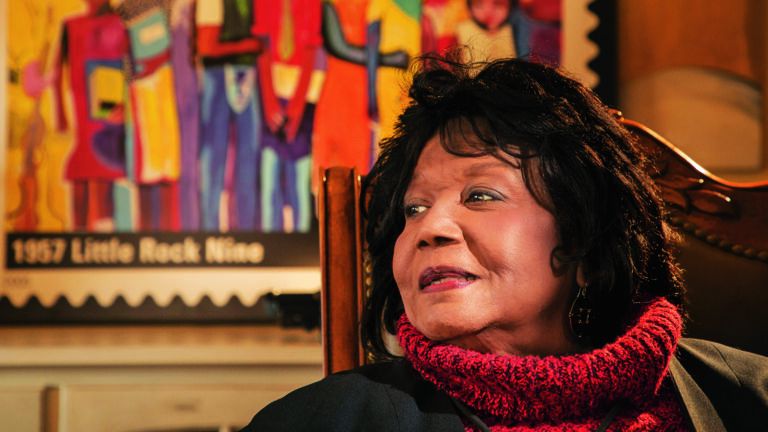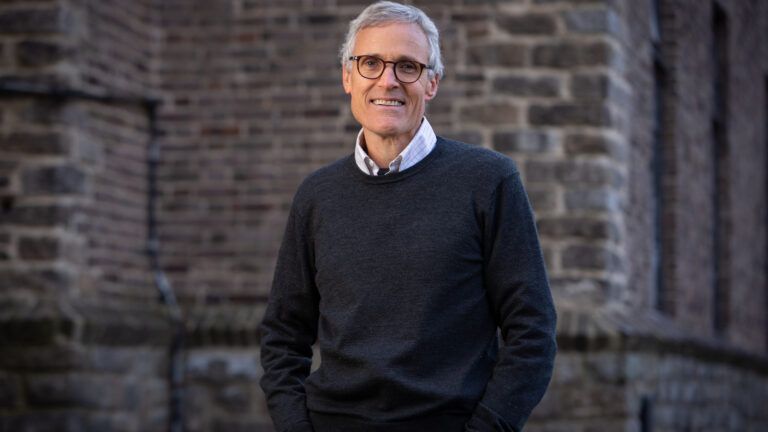From Pray for Me by Rick Hamlin. Copyright ©2018 by Rick Hamlin. Published by FaithWords, a Division of Hachette Book Group. All Rights Reserved.
As I lay in my hospital bed, seriously ill with a lung infection that had stymied my doctors, one of the worst aspects was feeling that I couldn’t be the person I wanted to be—and maybe never would be again. Gregarious. An extrovert in action. A strong and healthy husband, father, colleague.
A major fear was that I would never sing again. God has given me a lifeline in music, opening me up, straightening me out, making the rough places plain, quieting my soul even as I make noise. Would I have to give that up and lose that part of myself? Perhaps all that would be left of my musical talents and achievements would be the moments of song preserved on my phone, on Facebook.
Sixty songs. Earlier that very year, in honor of turning sixty I had posted a song a day for 60 days on Facebook, videos that I took on my phone. I began on a Friday in May, without any list.
The first song, “Precious Lord,” I recorded near my New York City office on Fulton Street, with the Freedom Tower in the background—would people notice? I did two takes and that was it. I planned to record each song in a different spot in the city, giving them different settings. If Gene Kelly and Frank Sinatra could sing “New York, New York, it’s a wonderful town” all over the city, couldn’t I? It’s not like I was shy about singing in public. I’d embarrassed my children enough over the years by breaking out in song in unexpected places.
I soon discovered how noisy New York is, the din of traffic and air conditioners and jets overhead competing with my music. It was fun to record “Moon River” outside of Tiffany’s in honor of Audrey Hepburn, but the passing buses gave me a lot of competition. Same problem with “Give My Regards to Broadway” on the corner of 42 and Broadway.
Nonetheless, I was touched by the enthusiastic responses of friends and followers, their comments making me smile.
Two-part harmony. I often recorded in the subway tunnel for the acoustics, choosing it for favorite old hymns, like “How Great Thou Art” and “Great Is Thy Faithfulness.” For “What a Friend We Have in Jesus” I walked to the end of the Brooklyn-bound J-Z platform. From the number of people waiting there, I could tell that any moment a train would be coming.
Sure enough, the train rumbled in, and everybody stepped on. I waited for the noise of the departing subway to disappear down the tunnel, then held up my phone to record “What a friend we have in Jesus/All our sins and griefs to bear/What a privilege to carry/Everything to God in prayer…”
I botched it once and tried again. I was halfway through this second take—or maybe it was the third—when I heard someone whistling. The platform was filling up. The next train would be coming. That guy whistling is really going to ruin this take. I’m going to have to do it all over again, I told myself.
Then I listened a little more closely. He was whistling with me, my partner in harmony.
I finished up and called out on the platform, “Who was whistling?” I looked both ways. A guy in a yellowish shirt waved his hand at the far front end.
“Thanks,” I said. “That was terrific.”
When I watched the video I could see him, in his yellowish shirt, walking right behind me to his spot on the platform where he began tuning in. It made me happy. The whole thing made me happy, all my grief to bear, a way out of trouble anywhere.
That’s what music had been for me—both a private joy and a gift to share. Would it ever be again?
Strengthen Your Faith with Free ebooks on Prayer, Bible Study and More
Facing Fear. After two agonizing weeks in the hospital, I was strong enough to be discharged in mid-September. My pulmonologist finally gave me and my wife, Carol, the only theory we’ve gotten of what might have caused this disastrous infection: an allergic reaction to drugs I had been given for a minor skin problem.
One sunny fall day I was coming back from a test at the sprawling medical campus—another look at my clearing lungs—and that day I had enough strength to walk the fifteen blocks to my apartment instead of taking a cab or a bus. I paused in a park along the way and sat on a bench, remembering our kids playing here when they were young. It was a place that had sustained us and made us happy. I felt I needed to claim it all over again. I would not let new fears rob me of the joys of the past or the joys to be found on a glorious fall day. Enjoy the day, Rick. Be grateful. Be glad. You are loved. You are unconditionally loved by the Greatest Lover in the universe.
It was time to push past my apprehension and try to recover my singing voice. I gave myself a musical project. I would work to get my voice back in shape, then sing a song a day for Advent and post them online. Alisa, a pianist and composer, recommended a couple of songs that we could record together. I downloaded the music and put myself at the keyboard, learning the notes, doing it when Carol was out of the house because I didn’t want her to hear my scratchy-sounding tones.
It was hard at first to find the right register to sing in. I suspected that the tube they had sent down my esophagus for a big test in the hospital had done something to the vocal cords. But I was determined.
“Emmanuel,” I sang, “Our God is with us. And if God is with us, who can stand against us…” Sustaining the notes started to come easier, finding the breath. My stamina still had a long way to go, but singing was coming back. I could make music again. At least for myself.
Victory. There was someone, however, whom I trusted not to be critical of my vocal efforts. Wesley was a homebound 94-year-old Tuskegee Airman and consummate musician who had been a member of our church. I had regularly visited and sung with him before my illness.
On a Sunday afternoon, long enough after my discharge from the hospital that I felt confident I would not be bringing Wesley any germs, I took the subway up to his place in the Bronx. He was weaker and thinner, his voice softer. He winced in pain when I touched his shoulders in the hospital bed. His best friend from World War II had died since I’d seen him last, and he felt the loss, but we sang again together, Wesley making harmony with whatever I picked out of the hymnal. He would not be long in this world.
“I’m sorry that I was away for so long,” I told him. “I was sick and in the hospital.”
“I know,” he said. “I prayed for you.”
One day in the middle of the week I got a call from a fellow parishioner. “Can you come visit Wesley? I don’t think he’ll be around much longer.”
“I can’t come up right now,” I said. “But I’ll be there this weekend.”
I hung up the phone, and then had second thoughts. What if he didn’t make it to Saturday?
I called right back. “Let me sing to Wesley now,” I said to his caregiver who answered the phone. “I’ll sing one of the hymns he liked. If you can hold the phone up to his ear, I’m sure he’ll hear it.” They say that hearing is one of the last of our senses to go.
I darted into a conference room at the office and closed the door, and sang “Amazing Grace” into the phone. It was around 1:00 in the afternoon. “God bless you, Wesley,” I said, promising to call back later with another song, another hymn.
That afternoon at around 5:00 I was in Times Square on my way to an appointment, and I picked up my phone to call Wesley. This time I wanted to sing “Be Thou My Vision,” another one of his favorites. I dialed, got his caregiver, identified myself and asked if I could sing for Wesley. Could she hold up the phone for him to hear?
“He passed,” she said, tears in her voice. “Just this afternoon, shortly after you called.”
“I’m so sorry,” I said. “Thank you for caring for him. Thank you.” I was not sure I could say anything else.
I stood in the street and sang the words to myself, to anyone who was passing me in Times Square. It was that last verse I wanted to sing for him. “High King of Heaven, my victory won/May I reach Heaven’s joys,/O bright Heav’n’s Sun!/Heart of my own heart, whate’er befall,/Still be my Vision, O Ruler of all.”
Wesley’s victory was won. And, in another sense, as I stood among the passersby, singing out as in old times, so was mine.




